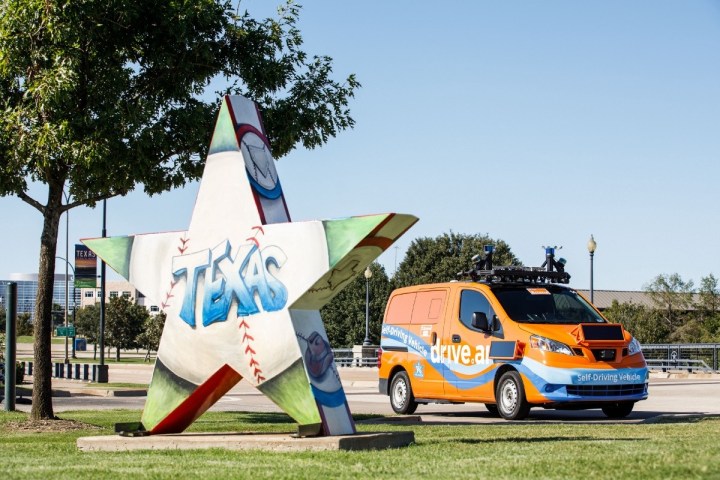
Not only is everything bigger in Texas, but, things could soon be easier, too. At least, that seems to be the hope of California-based autonomous car company Drive.ai, which has launched a second pilot program in the Lone Star state. Residents of Arlington can now ride in the same self-driving shuttles as people in Frisco already do. The company’s goal is to help “people get where they need to go in a way that’s safe, efficient, and enjoyable to experience.”
Trusting an autonomous shuttle to take you to the nearest taco stand is easier said than done, but the company has logged some pretty impressive mileage. Since April 2018, the team has been driving within geofenced routes and has racked up well over 1 million simulated miles in Frisco. Of course, these aren’t the same as real-world miles, but Drive.ai notes that “running comprehensive simulations improves our vehicles’ ability to foresee and handle a wider variety of driving scenarios.” The team created simulations that both replicated situations they’d come across in the real world, as well as unique testing scenarios they developed on their own.
Now, over a million miles later, Drive.ai feels confident launching its on-demand service in Arlington. To ensure safety and convenience, these rides will take place only within a virtual geographic boundary defined by GPS or RFID technology that features retail, entertainment, and office space. This pilot will run with fixed pickup and drop-off locations, serving as a sort of self-driving shuttle service. The best part? The rides will be free.
While Waymo and Uber have claimed many early headlines around self-driving tests, Drive.ai has been hard at work on its own solutions for quite some time as well. By launching a second pilot program, the startup could be one step closer to placing autonomous automobiles on roads across America. The company wrote in a Medium post that it is already looking for the next city in which to deploy shuttles.
In an effort to make this pilot program as safe as possible, Drive.ai is working to educate members of the community about autonomous technology and is placing informational signs throughout the proposed route. All vehicles are painted a bright orange for maximum visibility and have four external screens that are meant to display the vehicle’s next move to pedestrians, as well as to other drivers. The prototypes are based on the Nissan NV200 van.
“Self-driving cars are here, and can improve the way we live right now,” said Sameep Tandon, co-founder and CEO of Drive.ai. “Our technology is safe, smart, and adaptive, and we are ready to work with governments and businesses to solve their transportation needs.”
Updated October 22, 2018: Drive.ai launched its on-demand self-driving car service in Arlington, Texas.


